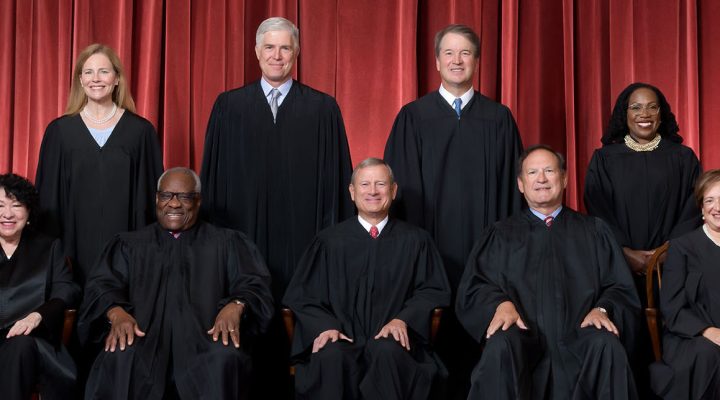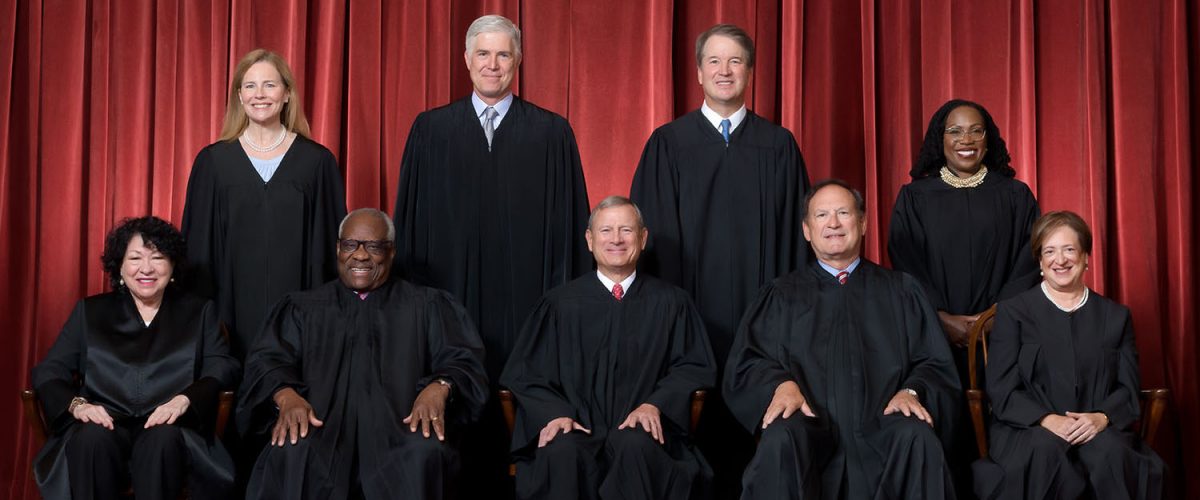The United States Supreme Court is poised to issue decisions soon on a blockbuster list of important issues that could impact nearly every American, including abortion, the January 6 attack on the U.S. Capitol, guns, homeless people, and social media content.
The first of those came Thursday, June 13, with the court’s unanimous ruling that anti-abortion activists who sought to outlaw a popular medication used for ending a pregnancy at home did not have standing to bring the challenge.
A variety of Christian groups have weighed in with friend of the court briefs submitted in the seven remaining controversial cases examined here.
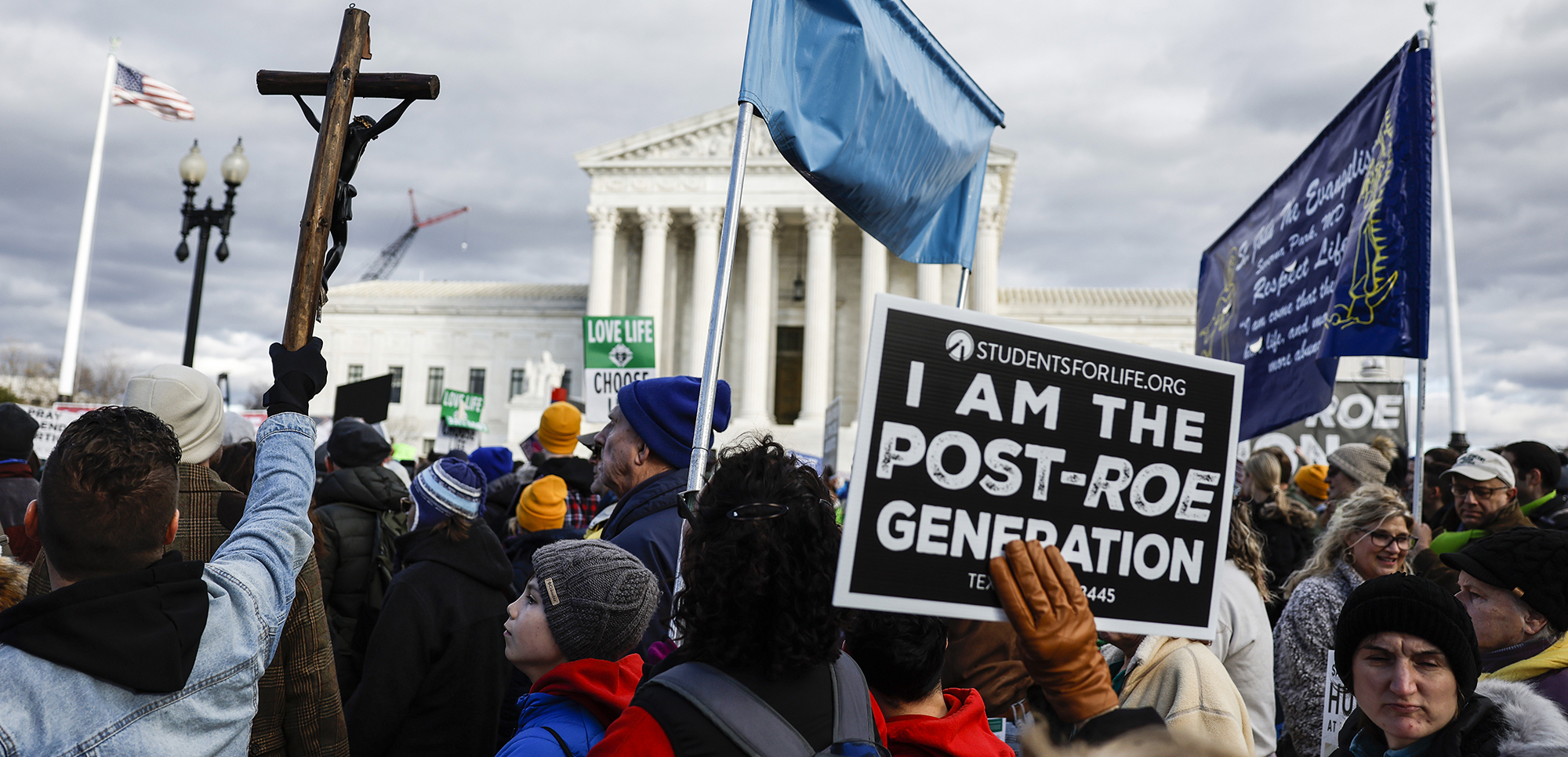
People attend the 50th annual March for Life rally in front of the U.S. Supreme Court on January 20, 2023, in Washington, DC. This year’s march by the anti-abortion activists was the first since the Supreme Court decided Dobbs v. Jackson Women’s Health last year, which overturned 50 years of federal government protections for abortion healthcare. (Photo by Anna Moneymaker/Getty Images)
Abortion: In addition to the case on mifepristone, the abortion-inducing medication, the court is considering Fischer v. United States. At issue: Does a federal law requiring hospitals to provide abortions if needed to save the life of a mother override Idaho’s state ban on emergency abortion care?
The case was filed by Alliance Defending Freedom, the powerhouse conservative Christian legal organization.
Anti-abortion groups oppose federal intervention when states have enacted laws restricting abortion care.
Anti-abortion groups oppose federal intervention when states have enacted laws restricting abortion care: “No longer can states or the medical profession decide whether a given kind of procedure is inappropriate for doctors because it is too dangerous, or too new and untested, or too ethically fraught, or because its benefits are too unclear. Nor can they even decide what circumstances do or do not warrant any given kind of procedure.”
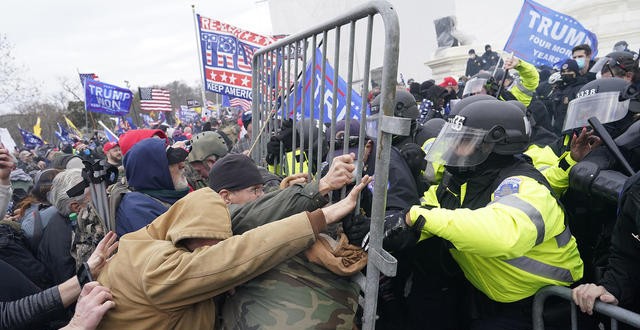
Law enforcement officers attempt to block rioting supporters of Donald Trump from breeching the U.S. Capitol on Jan. 6, 2021. (via CBS News)
January 6: Two cases address whether then-President Donald Trump may be held criminally responsible for any of his actions on that day, and whether people who attacked the Capital on January 6 may be charged with obstruction.
At issue in Trump v. United States: To what degree do presidents have immunity for actions they take while in office?
Trump and his allies argue a president has complete immunity for his actions, even if they are motivated by self-interest and work to undermine democracy.
Jay Sekulow’s American Center for Law and Justice says: “The president of the United States occupies a unique role, singularly responsible for the actions of the Executive Branch, and is entitled to the legal protections necessary for our government to properly function.”
A second case, Fischer v. United States, contends the District of Columbia Circuit Court was wrong when it sentenced January 6 attackers for obstruction of government congressional inquiries and investigations.
Liberty Counsel Action, the political arm of the conservative Christian legal group Liberty Counsel, says: “As a zealous advocate for the First Amendment, amicus appeals to this court to limit the unconstitutionally overbroad application of federal criminal statutes to prevent the chill of constitutionally protected expression of those who wish to assemble, speak and petition to have their voices heard and who otherwise attempt to influence legislation and policy.”
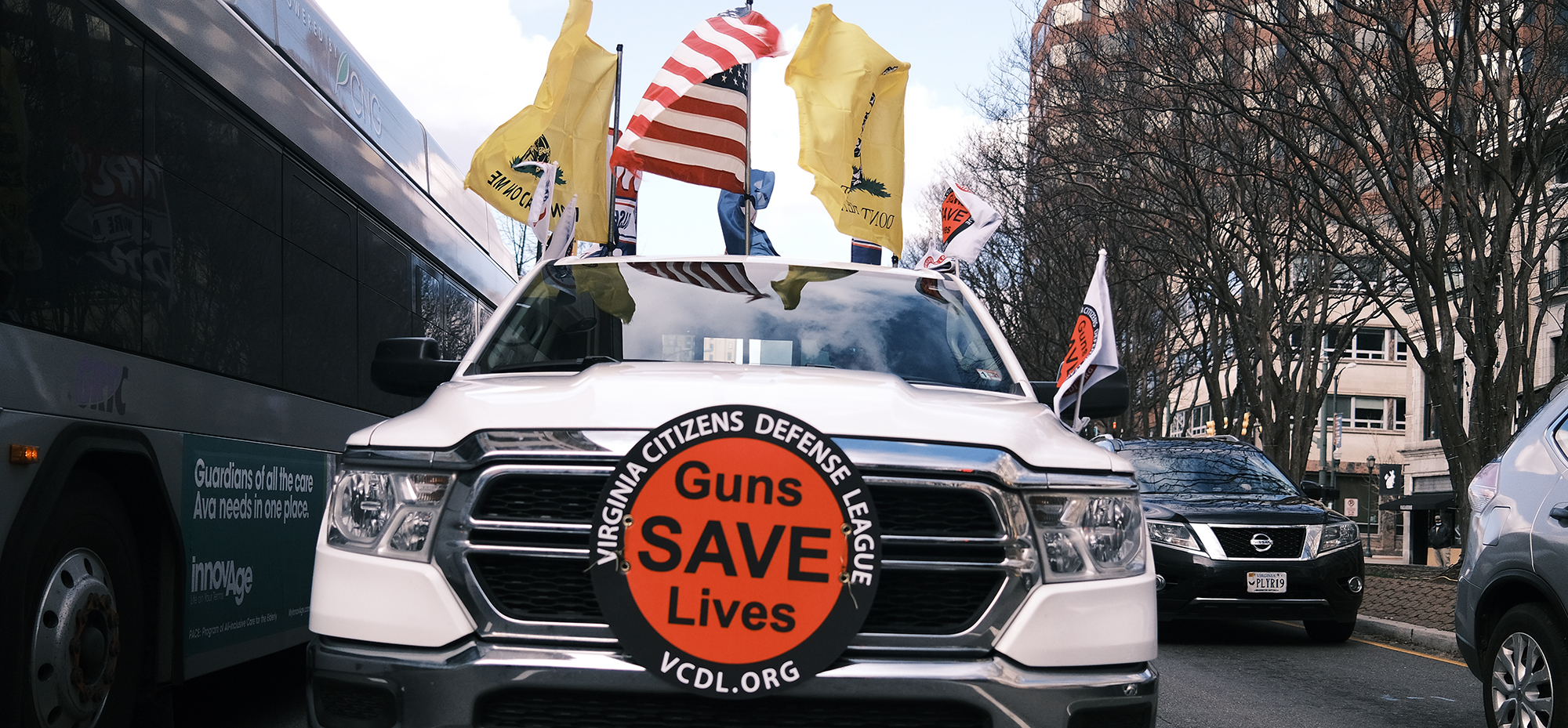
A truck adorned with a sign that reads “Guns Save Lives” takes part in a pro-gun rally near the Virginia state Capitol on January 18, 2021. (Photo by Eze Amos/Getty Images)
Gun rights: In the case United States v. Rahimi, Christian groups are pitted against each other with opposing views.
At issue: Are laws disarming people under domestic violence orders constitutional?
“A woman who lives in a house with a domestic abuser is five times more likely to be murdered if he has access to a gun,” said the government’s attorney, arguing Congress is right to disarm those “who are not law-abiding, responsible citizens.”
Christian groups of many kinds support disarming those involved in domestic violence, including the United States Conference of Catholic Bishops; Nuns Against Gun Violence; Sisters of Mercy of the Americas Justice Team; the evangelical group Sojourners; Jewish, Episcopalian and Muslim leaders; and nonprofit urban ministries.
Some groups cited “a shared commitment to promoting the safety of domestic violence victims, including by supporting the removal of guns from the hands of violent domestic abusers.”
The Catholic bishops said: “Values of particular importance … include the protection of the dignity and well-being of vulnerable and disadvantaged persons who live under threat of violence, and the proper development of this court’s jurisprudence in that regard.”
But conservative Christian groups founded by Phyllis Schlafly and former Judge Roy Moore oppose any gun restrictions.
“Domestic violence charges are commonly over-prosecuted,” said the Schlafly amici brief. “This case is more political than legal.”
That brief includes these three claims:
- Restraining orders are often used tactically to gain advantage in custody battles and divorces and have no reliability for criminal law purposes
- Domestic violence is over-prosecuted against the wishes of complainants
- California remains high in violent crime despite its gun control
Roy Moore gained fame for installing a monument featuring the Ten Commandments in Alabama’s state judicial building and refusing the state’s Supreme Court order to remove it.
“The United States of America as we know it owes its existence to the right of private ownership of firearms.”
“The United States of America as we know it owes its existence to the right of private ownership of firearms,” said Moore’s Foundation for Moral Law. “The Founders would have never tolerated Congress passing a law restricting firearm ownership.”
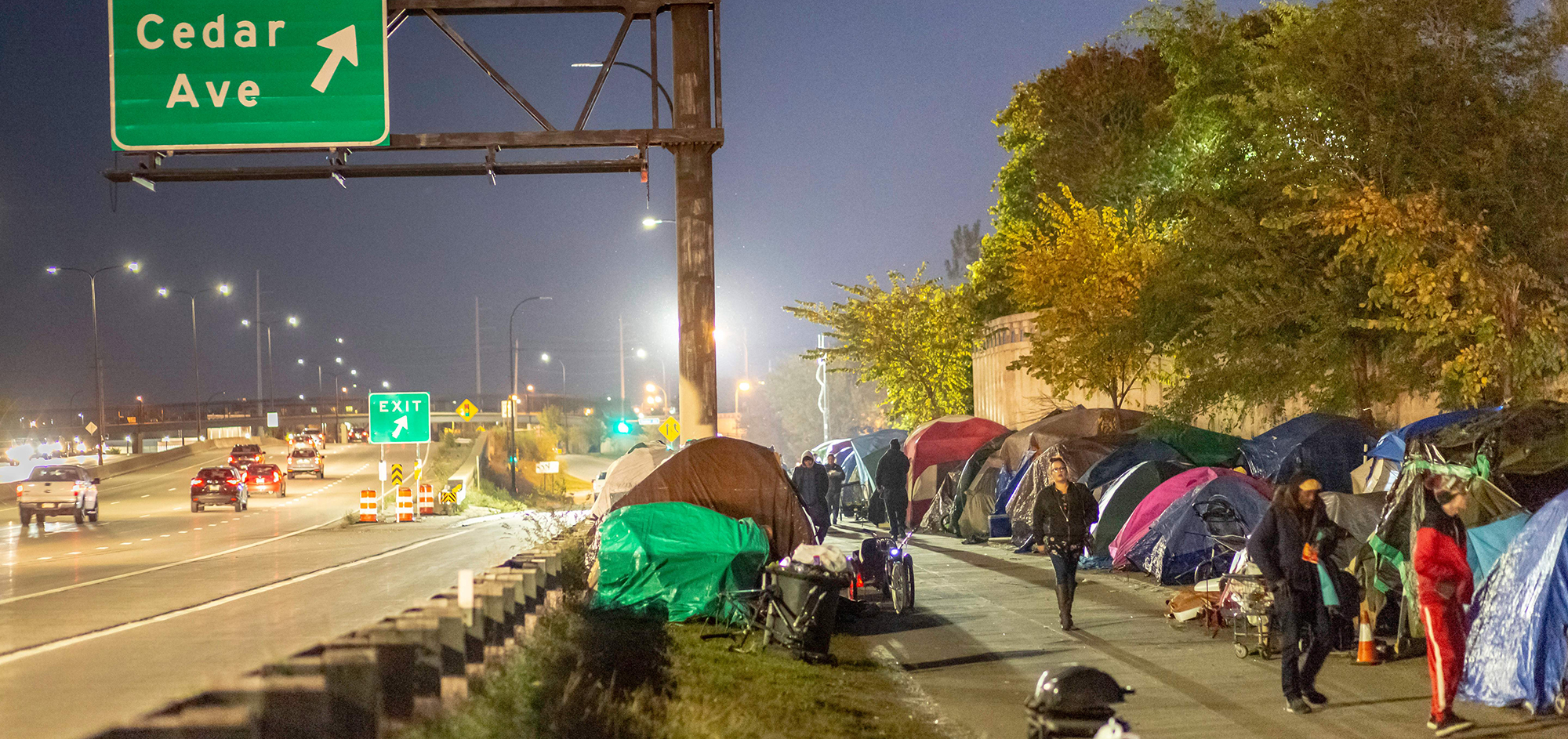
A homeless encampment is shown near the Little Earth housing project in October 2018, along Cedar and Hiawatha Avenues in Minneapolis. (Photo credit should read KEREM YUCEL/AFP via Getty Images)
Homeless people: The case is City of Grants Pass, Oregon v. Johnson. At issue: Can cities use laws regulating camping on public property to arrest homeless people?
The Grants Pass Gospel Rescue Mission supports restrictions on homeless camping, saying “the city’s inability to enforce its public camping ordinances has caused more of the city’s homeless to remain on the streets instead” of using its services, including housing, counseling and job training.
It argued: “Because the city can no longer enforce its ordinances prohibiting such camping, more of those individuals elect to remain on the streets and on other city property. As a result, far fewer individuals participate in the mission’s services — and discharge from its shelter with income and a home — than otherwise would.”
The U.S. Conference of Catholic Bishops opposed restrictions on camping, citing the need to protect “the dignity and well-being of vulnerable and disadvantaged persons who lack access to adequate shelter.”
“It has long been central to Western tradition and Catholic teaching that homeless people should not be punished merely because they lack shelter,” the bishops argued. “As Pope Francis has emphasized, ‘The Son of God came into this world as a homeless person. The Son of God knew what it was to start life without a roof over his head.’”
Another brief was filed by Oregon Quakers and partnering groups: “This case raises the legal question of whether making it unlawful to cover oneself with a blanket when sleeping on public property is cruel and unusual punishment. … This is also a question of spiritual importance to all Quakers.
“The unsheltered do not contend that Grants Pass must provide them with blankets or bedding. They do contend, however, that Grants Pass cannot make it illegal for them to use their own blankets when they lie down to sleep. Grants Pass deprives them of the ability to care for their own ‘basic human needs’ by denying them the ability to care for themselves by insulating their bodies from the cold.”

(Getty Images)
Social media: Two cases will determine who — if anyone — may regulate the content spread far and wide by social media.
One case addresses the legality of social media companies’ efforts to regulate content on their platforms. Another case addresses whether it is constitutional for representatives of the government to seek the removal of certain types of content.
Conservative Christian groups argue for zero oversight of any content. The National Religious Broadcasters said: “This court should rule that the government of the United States may never seek to suppress protected speech. Starting at the White House and spiraling down through a myriad of federal agencies and officers, the Biden administration has sought to suppress messages that they deem to be misinformation. The administration’s effort to suppress speech has ranged in degrees of coerciveness from mere suggestions up to efforts that can fairly be described as threats and intimidation. Some speakers were banned from social media sites. Some messages were removed. Some speakers and messages had their ideas suppressed by sophisticated algorithms that limit the reach of targeted messages.”
One of those banned speakers was the Babylon Bee and its partner Christian outlet, Not the Bee, which were banned from some social media apps due to criticism of transgender people.
These platforms now assert the unlimited and unilateral right to “censor, deplatform or shadow-ban disfavored users, disfavored content and disfavored viewpoints,” argued the Bee outlets, which said they “desire an intellectually diverse social media universe in which all Americans — including those of the religious center-right — have an equal platform to advocate their views. At a minimum, amici want social media platforms to transparently announce and evenhandedly apply their content standards, as Florida’s Senate Bill 7072 and Texas House Bill 20 require them to do.”
Jay Sekulow makes another appearance, this time defending deplatformed conservative celebrities Charlie Kirk, David Harris Jr. and Robby Starbuck.
Sekulow says the government conducted a “campaign to censor online expression … through manipulation of major social media platforms” featuring content that was “being blocked, demoted and targeted on those same platforms. …
“The government … engaged in an audacious campaign to use large social media platforms to block or demote online domestic viewpoints … that ran counter to the policies of the White House and its Executive Branch agencies.”
The social media companies and their allies assert content was banned because it was spreading mistruths and outright lies.

